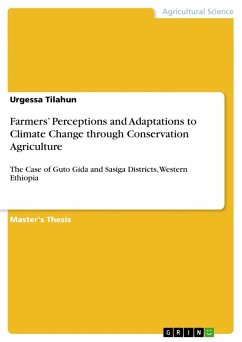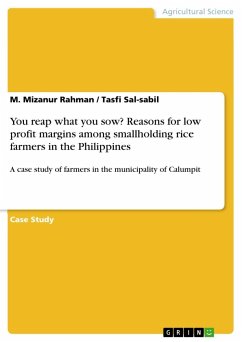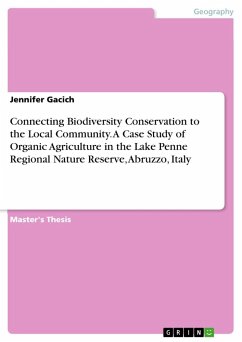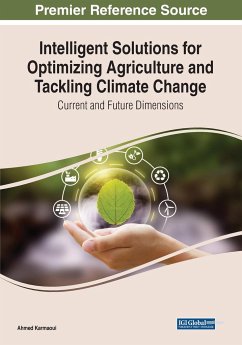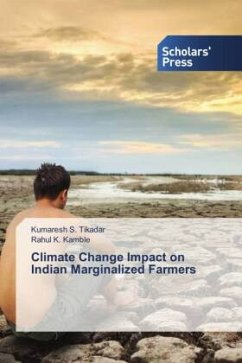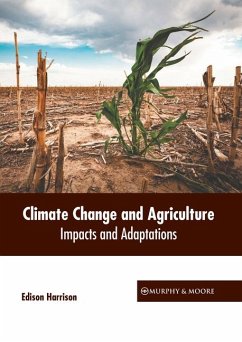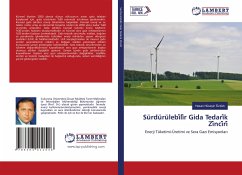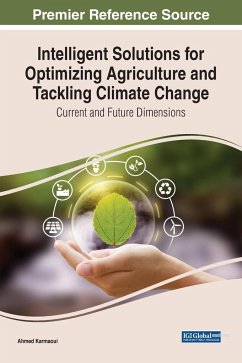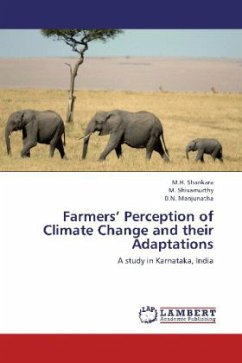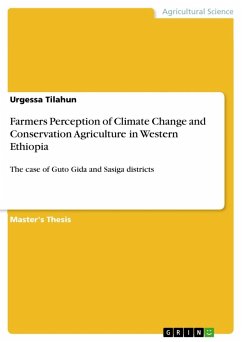
Farmers Perception of Climate Change and Conservation Agriculture in Western Ethiopia
The case of Guto Gida and Sasiga districts

PAYBACK Punkte
0 °P sammeln!
Master's Thesis from the year 2013 in the subject Agrarian Studies, grade: A, Wollega University, language: English, abstract: Climate is a primary determinant of agricultural productivity. Ethiopia, one of the developing countries, is facing serious natural resource degradation problems. Adaptation strategies for environmental conservation require cooperation and local participation in environmental rehabilitation which in turn requires examining the local peoples' willingness, beliefs, knowledge, attitude, interest and perception about climate change and conservation agriculture. The main ob...
Master's Thesis from the year 2013 in the subject Agrarian Studies, grade: A, Wollega University, language: English, abstract: Climate is a primary determinant of agricultural productivity. Ethiopia, one of the developing countries, is facing serious natural resource degradation problems. Adaptation strategies for environmental conservation require cooperation and local participation in environmental rehabilitation which in turn requires examining the local peoples' willingness, beliefs, knowledge, attitude, interest and perception about climate change and conservation agriculture. The main objective of this study was to examine the farmer's perceptions and adaptation to climate change and participation in conservation agriculture. The data used for the study were collected from 142 farm households heads drawn from the five kebeles of Sasiga district and four kebeles of Guto Gida district. Primary data were collected using a structured questionnaire. In addition, secondary data were extracted from relevant sources to supplement the data obtained from the survey. In addition to descriptive statistics such as mean, standard deviation and percentages used, Heckman two stage sample selection model was employed to examine farmer's perceptions and adaptations of climate change. Farmers level of education, household nonfarm income, livestock ownership, extension on crop and livestock, households credit availability, temperature and precipitation were those variables which significantly affect the adaptation to climate change. Similarly, the farmers perception of climate change was affected significantly by information on climate, farmer to farmer extension, local agro -ecology, number of relatives in development group and perception of change in duration of season. A binary logit model was employed to analyze determinants of farmers' participation in conservation agriculture. Education level of the household head, number active family labour and main employment of the household head were significant variables in determining participation in conservation agriculture. Based on the results obtained, the following points were found to be of paramount importance: the government and policy makers should encourage the way farmers get extension on crop and livestock than ever in order to increase the farmer's adaptability to climate change. Perceiving the occurrence of climate change is prerequisite to adapt to the change. So, the government, policy makers, and NGOs should focus on the experience sharing between household farmers through conducting farmer to farmer extension.




